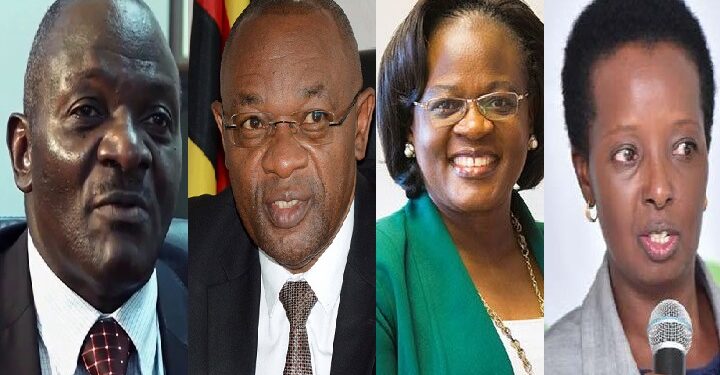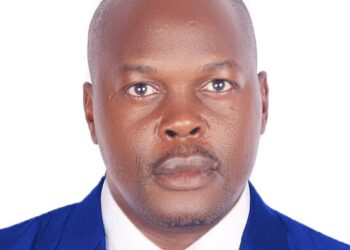The outcry on the state of road infrastructure in Uganda is a result of the failure of some leaders to do their utmost in supervising and monitoring of road projects, poor allocation and utilisation of resources and the usual corrupt tendencies. If all leaders-those holding public office-put their mind to the goal of instilling organised development, that’s exactly what shall be achieved.
A lot can be achieved if local leaders stopped looking at themselves as too basic to cause visible transformation in their area. A serious LC 1 has power to cause a lot of transformation at the village/cell level. Because that’s where the people are, any momentum generated at that level can go a long way in influencing the way things are done. I was recently in Turkey and learnt how sophisticated village leaders are. They run the country! And they have put a lot of interest in village level service delivery, including roads.
In Uganda, we are grappling a lot with district and small roads. The highways are quite good and safe, but the local roads have some serious work around them, and the push must come from the leaders at that level.
The works sector has benefitted from reasonable financial consideration of Government with the thinking that when transport infrastructure is addressed, it will facilitate socio-economic transformation. That has happened in some regard but a lot remains to be done. Small roads are done badly because of corrupt tendencies, whereby local leaders seek and take bribes from contractors in order not to be hard on them. Result? Shortage of funds to do the substantive works. These leaders “eat” tarmac and murram! Unpatriotic leaders and contractors look at small projects as inconsequential, reasoning that when they steal funds off them it’s not like when they steal off mega national projects, probably in hundreds of billions.
But, what has to be understood is that there is no small money. As long as it’s allocated to do a public project, every coin counts. Every small project done badly adds to the infrastructure gaps Government is working to plug. The science of how corrupt officials steal road funds is movie material; it has a lot to do with disappearing layers, missing inches and materials with “quick feet”.
A solution for the “missing layers” is to substitute tarmac with pavers. Apart from the fact that pavers are strong and long lasting, they are easy to replace in case of failure, water can’t permeate them, they are cost-effective and less time consuming to fix. Every time a road project drags on for too long or has a lengthy procurement cycle, it expands the surface area for corrupt tendencies. Technology of using pavers to construct roads shortens completion times, and minimizes the risk of exposing tax payers funds to too many hands.
Where pavers are already in use, they make smooth roads, with an aspect of beauty about them. And because there is no use of bitumen, there are good environmental benefits to reap.
At village level, leaders should aim at utilising 25% of local revenue to work on their roads-using pavers. This technology will change the “roadscape” in the parishes, divisions and municipalities as potholes will be a thing of history. A good entry point is Pillar 2 under Parish Development Model (PDM) on Infrastructure and Economic Services. The roads in the parishes and wards can be transformed simply by the leaders changing their mindset on how so little done well can contribute so much to the whole.
Well-grounded roads go well with proper road furniture, markings, visibility and beautification so as to maximise userability and safety. Some leaders, such as in Lugazi-along Mukoko-Jinja route, Masaka towards Nyendo from the Kampala direction, from Biharwe towards Mbarara city centre, the good roads have been supplemented with good lighting which makes the spots a joy to drive through. The spots are less prone to accidents happening because you can see real leadership in how they were built. Can we have leaders and contractors have true love for country when undertaking projects? It should not be all about getting a job, working through it and handing over as though one doesn’t use the same roads like everyone else. Children of such “traitors” should pose these questions to them; do they fly like birds or drive on the same roads they construct?
Then when you look at the deep concern about the state of roads in Kampala and some other urban centres, where potholes are still a major problem, apart from the obvious ill-will of some leaders that deny citizens social services in order to anger them- for political reasons against Government-some of the roads have potholes because of damage caused to them by burning tyres on them. Kampala, in recent years, has been a centre of violent political action (rioting) in which road infrastructure was targeted, causing very costly damage to the tarmac. That’s how some potholes developed and now we’re all perturbed, but few want to speak about this criminality which should attract severe penalties as a deterrent measure because the corrupt person who steals money for a road and the one who destroys a road are in the same bracket-of economic saboteurs.
Other damage is due to heavy trucks accessing the Central Business District (CBD), on roads that already carry too much traffic. Goods-laden megatrucks shouldn’t reach the CBD. They ought to stop on the edges of the city, then traders (or clients) send lighter vehicles to haul in the wares. For Kampala, shouldn’t heavy trucks stop in Bweyogerere or Namanve instead of snaking down all the way to Kikuubo and causing pressure on the roads while pushing traffic buildup to the brink? We need to think about these things critically!
The author is the Deputy Presidential Press Secretary
Email: faruk.kirunda@statehouse.go.ug
0776980486/0783990861
Do you have a story in your community or an opinion to share with us: Email us at editorial@watchdoguganda.com













